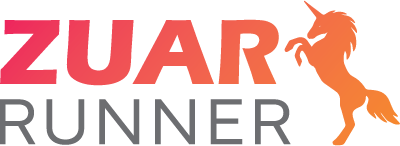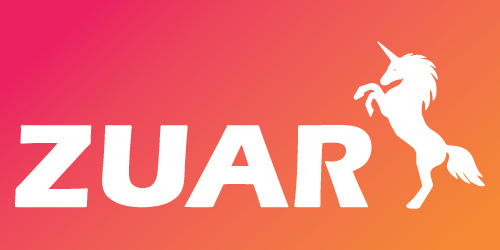4 Best Data Transformation Tools of 2023
See Zuar's 2023 top picks for data transformation software tools.

Data transformation is a vital step of the data pipeline that controls and manages the transition of data from its raw form to a state where it is ready to be loaded into a target data warehouse.
In order for every business to make insightful and data-driven decisions, the data transformation aspect of their data integration process needs to be up to par.
With ever-increasing amounts of data being ingested, it is imperative for businesses to find the best data transformation tool that maximizes the efficiency of their ETL/ELT processes without compromising data integrity.
In this article, we'll detail Zuar's picks for the 4 best data transformation tools of 2023, and also discuss what data transformation is for those that are new to it.
Related Article:


What Are Data Transformation Tools?
Data transformation is the 2nd step in the 'ETL' process (or alternatively, the 3rd step in the 'ELT' process). In this step, you're consolidating and structuring your raw data without compromising integrity, quality and security.
Data transformation solutions gather both structured and unstructured data from a wide variety of sources and convert them into a form that's optimized for the target database.
These tools facilitate tasks such as data cleansing, enrichment, aggregation, and normalization, enabling organizations to extract valuable insights from their data and ensure it meets specific requirements.
Typical examples of data transformation processes include: converting data from one format to another, altering rows and columns, converting units of measurement to maintain consistency, and auditing data to ensure data compliance.

Why Do You Need Data Transformation Tools?
Every business deals with a large amount of data daily. The databases they use, if not properly managed, can make or break the success of a business. This is where tools for data transformation come in.
The data transformation phase is a critical and integral phase in the three-phased ETL/ELT cycle. It helps to eliminate errors and inconsistencies in datasets, convert and change their formats to the preferred state, reduce the data size without compromising quality, and get the data ready to be loaded to a data warehouse, data lake, or other unified data repository.
All these actions and many more are ideally handled by a data transformation tool, helping your business save time, money, and effort and directing their focus to attain their business goals.

Comparing the 4 Best Data Transformation Tools of 2023
To simplify your process of choosing the best data transformation tool, we have compiled a list of the four best data transformation tools of 2023. They include:
- dbt
- Zuar Runner
- Qlik Compose
- Dataform

dbt
Data Build Tool, or dbt, is data transformation software that lets teams quickly and collaboratively deploy analytics code following software engineering best practices (modularity, portability, CI/CD, and documentation). dbt allows your team to transform and document data analytics, whether it is stored in a data lake, data warehouse, or beach house.
With dbt, everyone on the data team can safely contribute to the organization's data pipelines. It focuses on SQL coding and is designed explicitly for SQL-based data modeling. dbt has integrations with other data-based software (see Zuar Runner below), to create truly advanced data pipelines.
dbt is best suited for teams with advanced knowledge and expertise in SQL, and doesn’t guarantee a great user experience for teams without the appropriate expertise.

Zuar Runner
A complete end-to-end solution, Zuar Runner is the only tool you will need to create robust automated data pipelines. This solution can automate the flow of data from hundreds of potential sources into a single destination, and handles the necessary data transformation.
Some of the benefits of Runner include:
- Automated end-to-end workflows
- Set-it-and-forget-it data transformation and enhancement: pivot, aggregate, pre-calculate, table creation, and more
- Have everything you need to implement advanced analytics
- Runner works great with dbt, allowing for next-level transformation and orchestration
- Enterprise-level capabilities without the enterprise price tag
Runner has a variety of pre-built connectors but also provides the flexibility to add custom data sources via APIs, scripts and webhooks.
Examples of Runner's pre-built connectors include Salesforce, QuickBooks, Google Analytics, Amazon Seller Central, and many more.
Visit here to learn more about Zuar Runner.

Qlik Compose
Qlik Compose is a cloud-based automation solution that offers two project types; data warehouse and data lake. It allows for agile data warehouse automation that helps to handle repetitive tasks (including transformation-related tasks), reduces the costs of manually managing these tasks, and saves time.
It enables your IT team to easily sync data from sources with real-time feedback. Your team can create, import, and modify data models to complete a data model design.
Qlik Compose features allow your team to create metadata automatically, profile data to identify and prevent formatting issues, create configurations to resolve issues with your data automatically, and monitor the status of workflows generated automatically.
Limitations and cons of Qlik Compose:
- It cannot handle very high volumes of data, especially with more complex work.
- Users of the product have expressed disappointment with its documentation, user interface, stability/bugs, and capabilities to inject custom scripts.

Dataform
Dataform is an SQL-based transformation tool that helps to manage your data transformation process in Google BigQuery. It allows your team to collaborate and build a single source of truth for your company's data. It oversees the transformation of your data from its raw state into reliable and ready-to-be-loaded datasets.
Dataform's open-source framework saves you the cost of managing thousands of datasets. It offers a simplified approach to data modeling, pipelines and quality management. It also simplifies the process of writing and maintaining SQL pipelines.
Dataform is limited though, in that it only supports BigQuery and is not very intuitive for most with non-tech roles.

How to Choose the Right Data Transformation Tools
Identifying the ideal data transformation tools for your organization can seem daunting. There are many factors to consider such as the size of your organization, the sources of your data, your analytics use cases, and much more.
That's where Zuar can help. With our vast expertise in data transformation, we can recommend the best tools, methods and strategies. Additionally, you can learn more about our data pipeline/transformation platform Zuar Runner to see if it's a good fit for your organization.
To get free advice from a Zuar data specialist, please schedule an appointment with one of our data experts:




